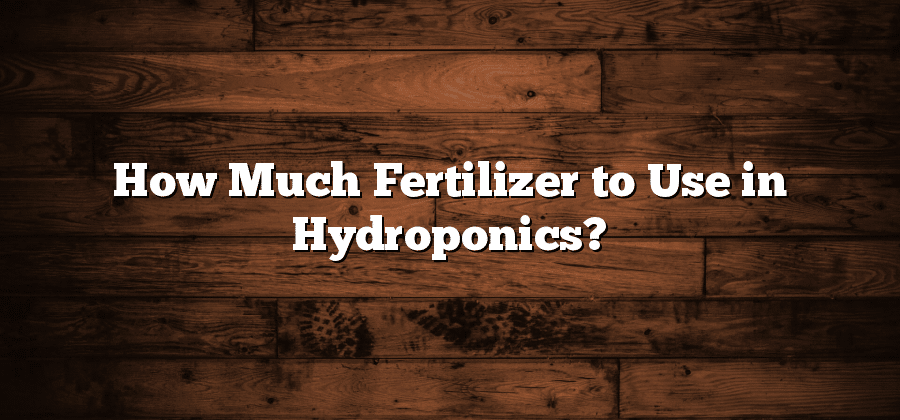Understanding Fertilizer Requirements in Hydroponics
Hydroponics, the practice of growing plants without soil, offers numerous advantages over traditional soil-based farming. One key aspect of successful hydroponic cultivation is understanding the specific fertilizer requirements for the plants. Unlike in soil-based farming, where nutrients are naturally present in the soil, hydroponic plants rely on nutrient-rich solutions to thrive. It is crucial for hydroponic growers to have a clear understanding of the essential nutrients required by the plants and how to provide them in the optimal quantities.
Essential nutrients for hydroponic plants include macronutrients such as nitrogen, phosphorus, and potassium, as well as micronutrients like iron, manganese, and zinc. These nutrients are vital for various plant functions such as photosynthesis, root development, and flower production. However, determining the appropriate dosage of fertilizers can be challenging since it depends on various factors such as plant species, growth stage, and environmental conditions. Additionally, over or under-supplying nutrients can lead to nutrient deficiencies or toxicities, adversely affecting plant health and growth. Therefore, it is essential for hydroponic growers to carefully monitor and adjust the nutrient levels to provide an optimal environment for the plants to thrive.
By understanding the specific fertilizer requirements for hydroponic plants, growers can ensure that their cultivated plants receive the necessary nutrients to grow and develop optimally. This knowledge allows for precise nutrient management, preventing nutrient deficiencies and imbalances that can hinder plant growth. In the following sections, we will explore the various factors influencing fertilizer dosage in hydroponics and how to determine the specific fertilizer needs based on different crop types. Additionally, we will discuss the importance of balancing nutrient levels to achieve optimal plant growth in hydroponic systems.
Essential Nutrients for Hydroponic Plants
Hydroponic plants require specific essential nutrients in order to thrive and grow vigorously. These nutrients are vital for their overall health, development, and productivity. Unlike traditional soil-based cultivation, hydroponics relies on a carefully balanced nutrient solution to provide plants with the necessary elements they would normally obtain from the soil.
The essential nutrients required by hydroponic plants can be categorized into two groups: macronutrients and micronutrients. Macronutrients, including nitrogen, phosphorus, and potassium, are needed in relatively large quantities and play a crucial role in supporting plant growth. On the other hand, micronutrients, such as iron, manganese, and zinc, are required in smaller amounts but are equally important for essential biological functions within the plant. By carefully monitoring and adjusting the nutrient solution, hydroponic growers can ensure that their plants receive the optimal balance of essential nutrients for healthy and robust growth.
Factors Influencing Fertilizer Dosage in Hydroponics
Hydroponics is a growing method that relies on providing plants with essential nutrients directly through a nutrient-rich solution instead of soil. The success of a hydroponic system heavily depends on the proper dosage of fertilizers. Several factors play a crucial role in determining the appropriate amount of fertilizer needed for optimal plant growth in hydroponics.
One of the primary factors influencing fertilizer dosage in hydroponics is the type of plant being grown. Different plants have varied nutrient requirements, and understanding these requirements is vital for success. Some plants may require higher levels of specific nutrients, while others may be more sensitive to nutrient imbalances. Therefore, it is crucial to consider the specific needs of each plant to ensure the right fertilizer dosage is applied.
Another factor to consider when determining fertilizer dosage in hydroponics is the growth stage of the plants. As plants progress through different growth stages, their nutrient requirements also change. For example, during the vegetative stage, plants may require higher amounts of nitrogen for leaf development, while during the flowering stage, they may need more phosphorous and potassium for the production of flowers and fruits. Monitoring and adjusting the fertilizer dosage according to the specific growth stage of the plants is essential for promoting optimal growth and maximizing yields. Understanding these factors is crucial for maintaining a balanced nutrient profile and ensuring the healthy development of hydroponic plants.
Determining Fertilizer Needs Based on Crop Type
Different crops have varying nutrient requirements, making it crucial to determine the precise fertilizer needs based on the specific type of plant being grown in a hydroponic system. Each crop has its own set of essential nutrients that are essential for proper growth and development. Understanding these requirements is fundamental in achieving optimal results.
Factors such as the stage of growth, the crop’s root system, and its nutrient uptake capacity are all important considerations when determining the fertilizer needs of a particular crop. For instance, leafy greens like lettuce and spinach often have high nitrogen requirements to support leaf growth, while fruiting plants such as tomatoes and cucumbers require higher levels of phosphorus and potassium for flower and fruit development. Additionally, some crops, like herbs or microgreens, may have more specific nutrient needs that must be met to ensure their healthy growth. By identifying the specific needs of each crop, hydroponic growers can tailor their fertilizer application to optimize productivity and yield.
Balancing Nutrient Levels for Optimal Plant Growth
Balancing nutrient levels is crucial for achieving optimal plant growth in hydroponics. Each plant type has specific nutrient requirements, and it is important to understand these needs in order to provide the right balance of fertilizers. A well-balanced nutrient solution ensures that plants have access to all the essential elements they need for healthy development.
To achieve this balance, growers must carefully monitor and adjust the nutrient levels in their hydroponic systems. It is essential to regularly test the nutrient solution and adjust the fertilizer dosage accordingly. Factors such as plant age, growth stage, and environmental conditions can affect nutrient uptake and utilization. By carefully analyzing these factors and fine-tuning the nutrient levels, growers can optimize plant growth and achieve higher yields in hydroponics.






